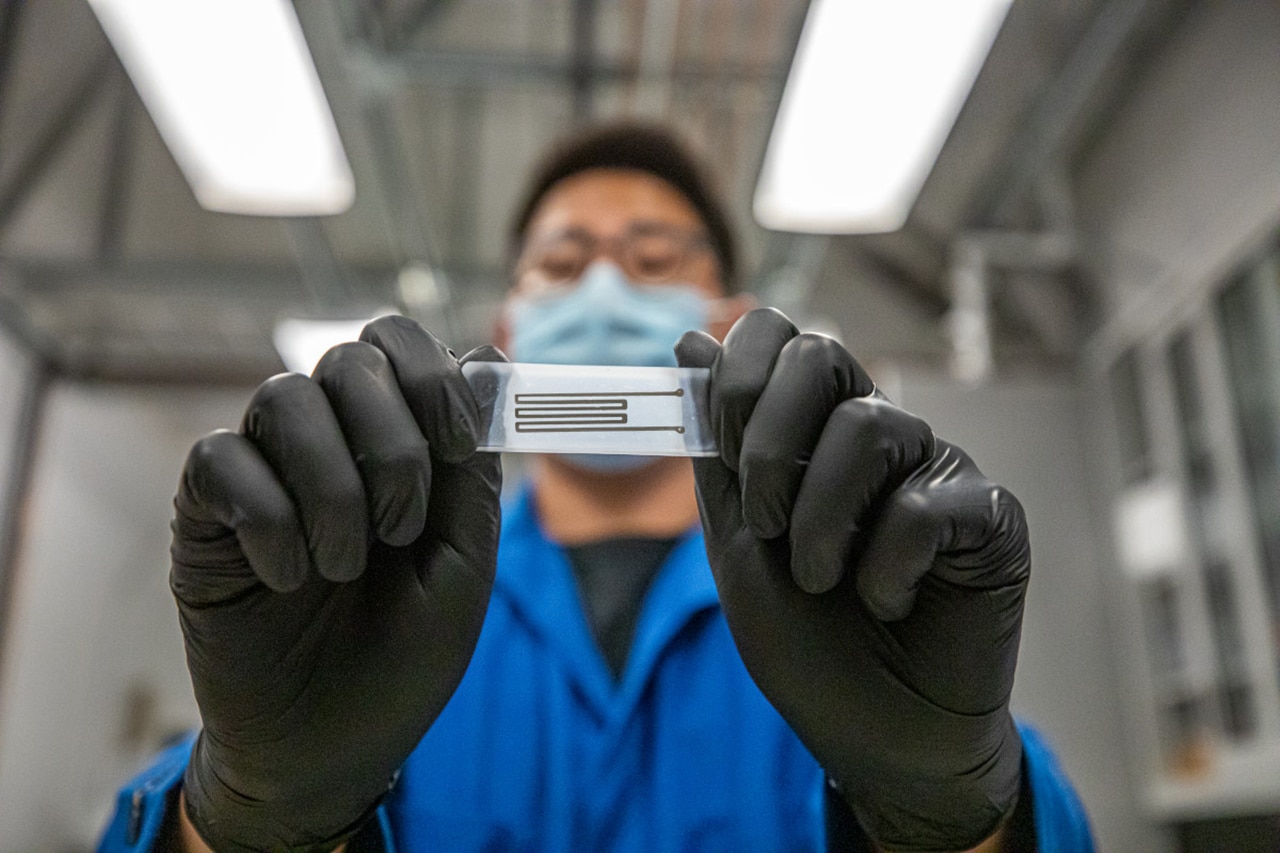
Electronic waste carries energetic costs and an environmental burden rivaling that of plastic waste due to the rarity and toxicity of the heavy-metal components. The e-waste problem will only get worse over time because most electronics on the market today are designed for portability, not recyclability.
Now, the researchers from the Department of Energy’s Lawrence Berkeley National Laboratory (Berkeley Lab) and UC Berkeley have developed a potential solution – a fully recyclable and biodegradable printed circuit. The advance could divert wearable devices and other flexible electronics from landfill and mitigate the health and environmental hazards posed by heavy metal waste.
The new design was built on researchers’ previous work, where they demonstrated a biodegradable plastic material embedded with purified enzymes such as Burkholderia cepacian lipase (BC-lipase) that would degrade the material’s polymer chains into monomer building blocks. Before a lipase can convert a polymer chain into monomers, it must first catch the end of a polymer chain. By controlling when the lipase finds the chain end, it is possible to ensure the materials don’t degrade until the water reaches a certain temperature.
This time, instead of expensive purified enzymes, researchers used cheaper, shelf-ready BC lipase cocktails to streamline production and reduce costs. This enables them to develop a printable conductive ink composed of biodegradable polyester binders, conductive fillers such as silver flakes or carbon black particles, and commercially available enzyme cocktails. The ink gets its electrical conductivity from the silver or carbon black particles, and the biodegradable polyester binders act as glue.
To test its shelf life and durability, the researchers stored a printed circuit in a laboratory drawer for seven months under normal conditions, exposed to everyday fluctuations in temperature and humidity. Then they applied continuous electrical voltage to the device for a month and found that the circuit conducted electricity just as well as it did before storage.
After that, the researchers put the device’s recyclability to test by immersing it in warm water for a few days. They found that within 72 hours, the silver particles completely separated from the polymer’s binders, and the polymers broke down into reusable monomers. This allows the researchers to easily recover the metals without additional processing. The team says approximately 94% of the silver particles can be recycled and reused with similar device performance.
The circuit also shows promise as a sustainable alternative to single-use plastics used in transient electronics – devices such as biomedical implants or environmental sensors that disintegrate over a period of time, said lead author Junpyo Kwon, a Ph.D. student researcher from the Xu and Robert Ritchie groups at UC Berkeley.
Researchers develop a fully recyclable and biodegradable printed circuit
Source: Tambay News



0 Comments